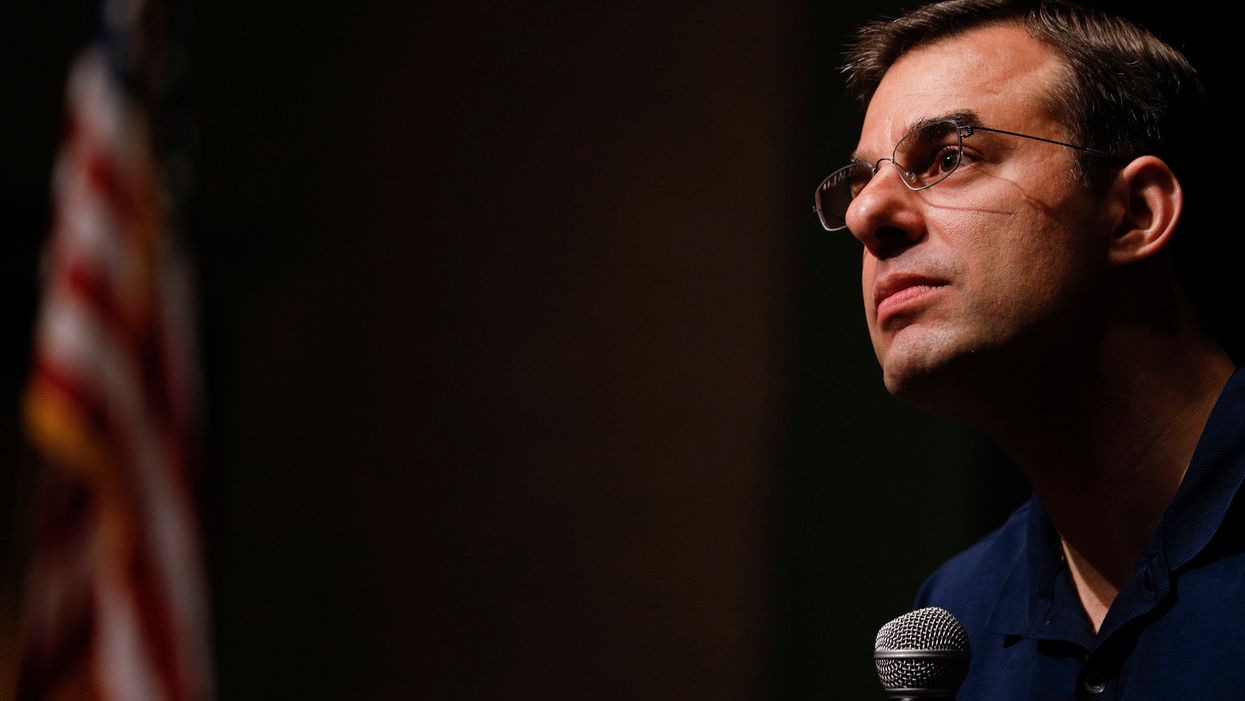Michigan's Justin Amash has a storied history as a political outsider in Washington. Although he's won five terms in Congress with an "R" next to his name, he often bucked the establishment and party line on issues such as spending, war, government surveillance and marijuana legalization.
He quit the Republican Party 10 months ago and is the only member listed as an independent on the official House roster. And on Tuesday he announced he would explore a run for the Libertarian Party's nomination for president – which would mean putting his rebellious streak on the national line by mounting a longshot challenge to the flawed ways the two major parties monopolize our democratic system.
Here is a little background: Amash was the only GOP member of the House to come out in favor of impeaching President Trump, almost a year ago. By then he had established a reputation as one of the few Republicans to consistently speak out against the president.
Amash's support for impeachment drew the ire of the group in which he was once a prominent figure: the House Freedom Caucus. It was a decision that also put a major target on his back.
On the Republican side, the party would no doubt run well-funded challengers to oust him in the primary. On the other side, Democrats saw an opportunity to flip his seat. So, Amash was feeling pressure from both parties to get out of Congress.
Instead, he dropped the GOP party label last July and declared himself an independent, which made his path to reelection much more challenging given how the current system emphasizes a limited choice for voters — red or blue, Republican or Democrat.
Now, Amash looks to be headed up or out. He announced in April that he had stopped actively campaigning for reelection — although he still remains in the race. And on Tuesday night he went onTwitterto unveil a new website, "Amash for America," that strongly signaled his intent to run for president.
"We're ready," the homepage says, for "an end to cronyism" and "an honest, principled president who will defend the Constitution and put individuals first."
A third party contender who has built the sort of public profile Amash has could shake up the race — drawing votes from both sides of the aisle and bringing in independents. However, this means he would immediately be scapegoated as a spoiler. And, no matter the outcome, he would be blamed by the losing major party for its defeat in November.
Kurt Couchman, who used to work in Amash's Washington congressional office, penned an op-ed for CNN.com in July 2019 describing how Amash could change the electoral landscape in 2020. But he also noted that, to avoid the spoiler effect, presidential elections needed a reform such as ranked-choice voting.
"To ensure that the ultimate victor has a mandate … Congress and the States should enact ranked-choice voting without delay," he wrote. "The stakes for 2020 are incredibly high, and the American people need clear outcomes."
But, to the potential benefit of those who want pro-voter reform, the choose-one voting method is not the only flaw in our current system that would be brought front and center should Amash run.
He would also raise awareness to the fact that:
- The presidential nomination process disproportionately focuses on candidates of the two major parties for the entire year, instilling the idea that voters only have two choices.
- As a result, it is impossible for a third party or independent candidate to make the presidential debate stage under the rules for inclusion. This is mainly because of the Commission on Presidential Debates' rule that to participate a candidate must poll above 15 percent in five polls of the commission's choosing.
- Third party candidates have to spend all their money and resources just to get on the ballot in enough states to have a mathematical chance at an Electoral College majority, and even then they face possible legal challenges from the major parties.
- The nation's campaign finance laws overwhelmingly support the major parties, allowing them longer periods of time to raise money and unlimited gateways to funnel money between parties and campaigns. This makes it impossible for outside candidates to raise anywhere near as much as major party candidates.
- Thus, Amash's candidacy would further highlight the reality that the system makes it impossible for meaningful competition to exist in presidential elections.
A high-profile independent or third party presidential campaign, whether people support it or not, would provide pro-voter reformers further evidence why the United States desperately needs to rethink its political system and transform its electoral process nationwide.
It could build on the tremendous momentum the reform community continues to see.
Visit IVN.us for more coverage from Independent Voter News.




















